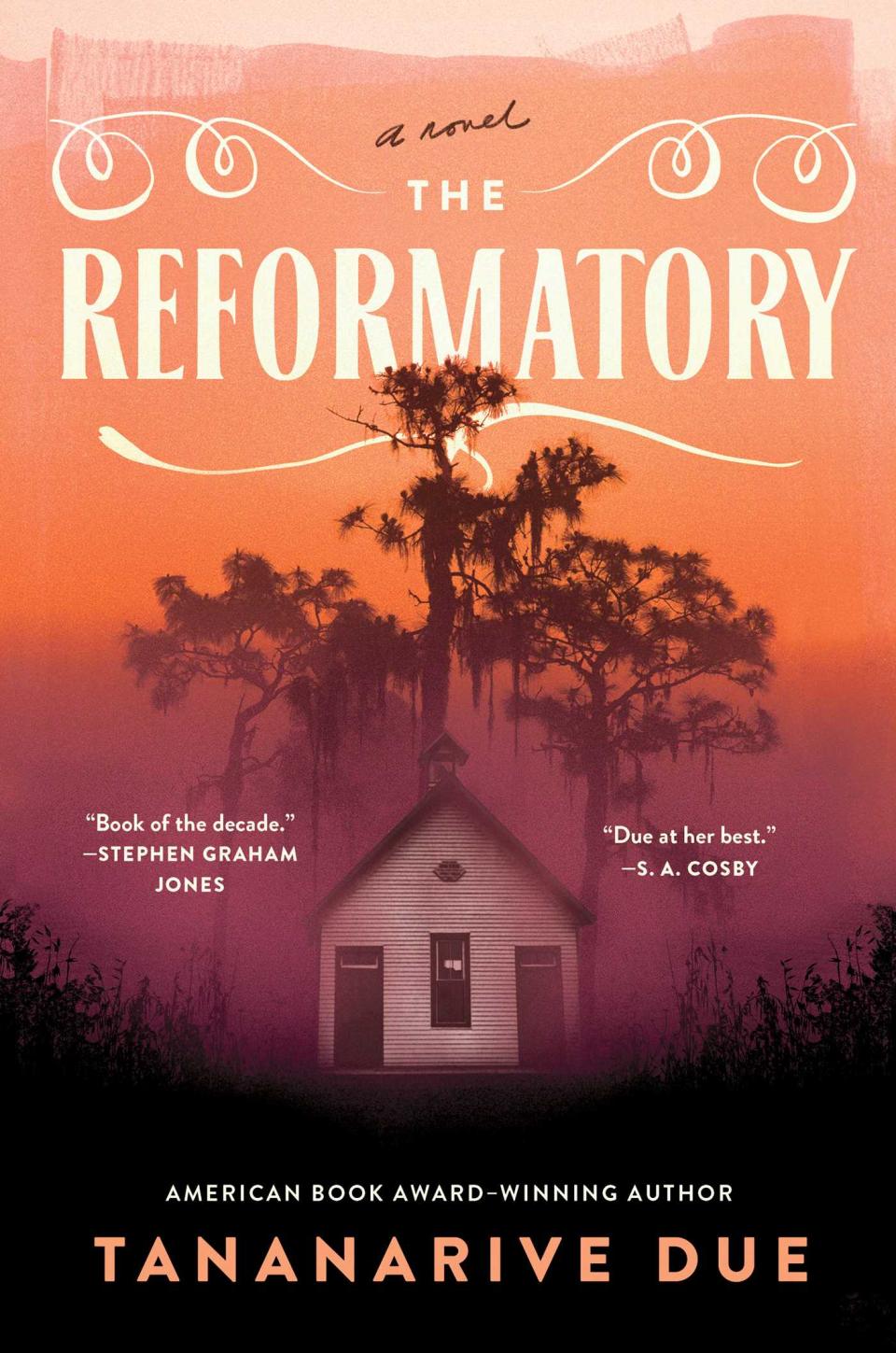'The Reformatory' by Tananarive Due is a haunted tale of survival, horror and hope
Purchases you make through our links may earn us and our publishing partners a commission.
There are scarier things in this world than ghosts.
"The Reformatory" (Saga Press, 576 pp., ★★★★ out of four), Tananarive Due's newest novel that's out now, follows 12-year-old Robert Stephens Jr., a Black boy in Jim Crow South who has been sent to the Gracetown School for Boys, a segregated reformatory facility (hardly a school) where so many boys have been sentenced – some never making it back out.
Gracetown School is rumored to be haunted by “haints,” ghostly beings of inhabitants who have died over the years. But maybe worse than the spirits are the headmaster and the school’s staff, who frequently punish the boys physically and mentally and are quick to add more time to sentences for the slightest infractions.

Robert was defending his older sister, Gloria, from the advances of the son of one of the most wealthy and influential white families in the area when he was arrested. She is doing everything she can to free her brother from that terrible place, but it won't be easy.
The novel is set in fictional Gracetown, Florida, in 1950, and there are few resources or avenues for recourse for Gloria or Robert. With their mother’s recent passing and their activist father fleeing to Chicago after being falsely accused of a crime, the siblings also have little family on which to lean.
Robert and Gloria must learn to navigate the challenges they are forced to face, in a racist world where they are hated, yet also invisible.
More: 'The Other Black Girl': Biggest changes between Hulu show and book by Zakiya Dalila Harris
Due’s book is a horror story, but not of the dead. It’s about the evils of man, control or lack thereof, despair and atrocities that are not just anecdotes, but ripped-from-the-pages-of-history real.
The facility at the center of the story may sound familiar. The abuse, torture, deaths and general injustice at Gracetown School for Boys closely mirror those at Florida’s very real Dozier School for Boys, a juvenile reform institution investigated numerous time before closing permanently in 2011.
The novel doesn't flinch from the terrors of the time, forcing you to see fully the injustices so many have faced then and even now. But it’s not a hopeless tale.

Due, a professor of Black horror and Afrofuturism at UCLA and winner of NAACP Image and American Book Awards, weaves wisdom and layers love through the horrific tragedies in her novel.
More: What is Afrofuturism and why should you be reading it? We explain.
The bond between Gloria and Robert is strongly rooted, a reminder of how important family is and what's worth protecting in life. And the lessons they learn from those around them – guidance in the guise of fables of our ancestors, when and how to fight back while being careful, how to test truths – may be intended more for the reader than the protagonists.
“The Reformatory” is a gripping story of survival, of family, of learning how to be brave in the most dangerous of circumstances. And it will haunt you in the best way long after you turn the last page.
This article originally appeared on USA TODAY: 'The Reformatory' by Tananarive Due is haunting survival story: Review
